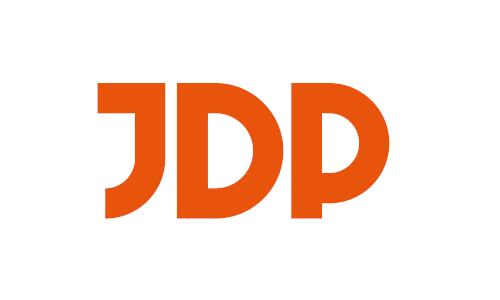- Executive Note
- Editorial note
- Interviews
- Finance and Financial Services
- Events Coverage
Mass consumer claims against banks – investment opportunity for law firms and litigation funds?
JDP | Jun 19, 2023, 20:31

By Adrian Andrychowski, attorney-at-law, counsel, JDP Law

The litigation landscape concerning mass consumer claims against banks is quickly changing in Poland, making it an interesting ground for further developments in litigation financing. Litigation finance involves non-recourse claim funding, where all the expenses are on the side of the funder, who receives their portion of the shares only in the event when the case has been successful in court.
Currently there are two main types of ongoing mass claims against banks in Poland: the first type concerns claims for the invalidation of mortgages granted in Swiss francs, while the other type involves claims based on the sanction of free credit provided in Article 45 of the Consumer Credit Act.
Basic background on the claims
To grasp the subject matter, a basic introduction to both types of claims is necessary.
The CHF mortgage claims have been revolving for some time and involve mortgages granted by banks to consumers prior to the 2008 financial crisis when the PLN-CHF exchange rate was much lower than currently. When the Swiss National Bank withdrew the currency peg to the euro in 2015, the value of the Swiss franc skyrocketed. Polish consumers faced a substantial increase in their monthly mortgage instalments, which in turn caused many consumers to ‘overpay’ their loan by already paying back the amount of the loan’s principal and initially calculated interest instalments, yet still having to continue paying the mortgage as the amount of the debt towards the bank was increasing. The case law was initially unfavourable towards consumers who were seeking relief, but in 2019 a substantial breakthrough was reached with a judgment issued by the Court of Justice of the European Union (CJEU). Currently it is firmly established in case law that consumers are entitled to invalidate their mortgage and as a result, both parties have to be returned to their initial positions – the bank is entitled to keep the principal, while the consumer should receive a return of anything paid above the amount of the principal (essentially the interest payments).
The other group of claims involves a potential sanction available to consumers who have taken out a cash loan from a bank or an alternative lender If the loan agreement violates the requirements set out in the Consumer Credit Act, such as calculating interest not only from the principal but also in relation to the loan origination fee, the loan agreement can be challenged through this sanction. If the consumer invokes the sanction, then the lender is obliged to return everything received from the consumer above the loan principal.
Recent case law developments will encourage consumers to advance their claims against banks more often
The CJEU issued on 15 June two significant judgments concerning mass consumer claims against banks in relation to the CHF mortgages. The first one denied banks any claims for compensation for the use of their capital by consumers without a legal basis (as a consequence of the invalidation). The second one establishes that consumers should the right to an interim injunction suspending their payment obligations to banks for the duration of the court proceedings until the mortgage is invalidated, even if the consumer has not yet overpaid the loan beyond its principal.
As a result, banks have thus lost their deterrent against consumers who were still contemplating whether to file for invalidation of their mortgage as the supposed claims were calculated by banks to exceed any amounts which the consumer would be entitled to receive after mortgage invalidation. Banks that are willing to amicably resolve these cases will have to offer better settlement terms than the ones initially offered, as the consumers will now have a better chance to have their payment obligations suspended at the start of the court proceedings which significantly improves their negotiating position.
Current market structure of legal services providers to consumers in relation to claims against banks
There are still at least 300,000 active mortgages in Swiss francs (CHF) and if each one is invalidated, then according to a recent article on Business Insider, the legal services market in this area would be worth 11 billion złotys[1]. In 2020 the Office of Competition and Consumer Protection estimated that the potential claims related to the sanction of free credit concern 14 largest Polish banks and a number of loan companies, and can amount up to 1.5 billion złotys. This amount is of course still growing as not all banks have corrected their agreements, some points are still contentious and not all consumers are aware of their potential claims.
There is already one litigation funder involved in CHF mortgage litigation, which entered the Polish market in 2021. Though the market is currently rather fragmented and consists mostly of numerous small law firms pursuing such claims. Apart from the litigation funder and law firms, on the market there are also alternative legal services providers which are structured as normal companies and raise capital through bonds to pursue the claims.
The most common remuneration model is where there is an upfront (retainer) payment made by the consumer, who pays a fixed amount to the law firms for each instance plus the court fee for filing the claim or appeal and the law firm (or legal services provider) then takes a success fee after the judgment becomes final and binding, typically ranging from 10 to 30% of the awarded amount.
Due to the current model of civil procedure and court fee structure in Poland, the CHF mortgage claim stays technically with the consumer and each claim is pursued individually.
As regards the claims related to the sanction of free credit, the model is a bit different. There are law firms specialised in pursuing such claims, but there are also companies which aggregate consumer claims through assignment. The consumer assigns the claim to such a company, which then sues the bank for payment and in the event of a successful lawsuit, the consumer receives around 50-70% of the awarded amount.
Prospects for the future – mass consumer claims aggregation
The banking sector and the Polish Financial Supervision Authority have made comments assuring that despite the recent judgments of the CJEU, the banking sector is still healthy and in order to ensure this, the banks will be increasing their provisions for potential litigation.
This might attract potential foreign investors exploring litigation financing opportunities in Poland. Moreover, the possibility of hoarding the claims might put pressure on the banks and politicians for a more comprehensive solution to the problem going beyond individual litigation or individually negotiated settlements.
Most likely we will see an increase in litigation options for consumers, which will allow them to pursue their claims with the aid of funders on a no-cost basis as currently some of them might be deterred by the costs of litigation (especially in the CHF mortgage cases the increase in the value of instalments caused a financial strain on their budget). This means that the consumer will not be liable for any costs associated with filing the lawsuit and subsequently participating in the court proceedings in exchange for a share in the final amount awarded by the court. Additionally, this may lead to the development of the insurance market in Poland in relation to litigation finance as investors will be seeking to insure their risk through After the Event insurance (ATE), which is currently not a readily available product.
Exciting times lie ahead, and what started several years ago as a set of isolated cases might give birth to an advanced litigation finance market in Poland for mass consumer consumers, which will definitely be the front runner in the CEE region.
[1] https://businessinsider.com.pl/biznes/na-hipotekach-frankowych-mozna-dobrze-zarobic-rynek-wart-miliardy/fyy0czq








